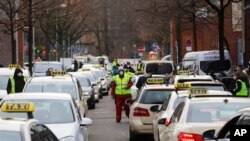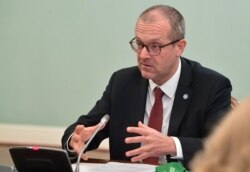The World Health Organization’s Europe director Hans Kluge said Thursday the continent is in the midst of what he calls the COVID-19 “pandemic paradox,” in which vaccine programs offer remarkable hope, while emerging variants present greater uncertainty and risk.
Speaking at a news briefing from his headquarters in Copenhagen, Kluge said a total of 35 countries in the European region have already administered 25 million doses of the COVID-19 vaccine.
But he said continued high rates of transmission and emerging variants of the coronavirus have raised the urgency of the task to vaccinate priority groups.
“The increasing expectation of science and vaccine development, production and equitable distribution, is not being met as fast as we would all like,” he said.
Kluge also noted the controversy over vaccine shortages that prompted tension between European Union officials and drug manufacturers. He said WHO has “no doubt that manufacturers and the producers are also working 24/7 to bridge the gap, and that I will remain confident that the delay which we are seeing now is going to be made up by extra production in the near future."
WHO’s Europe director also said COVID-19 restrictions do appear to be having an effect, but it is too soon to relax them. Kluge said he understands the strain the current situation is putting on communities.
“This paradox, where communities sense an end is in sight with the vaccine, but at the same time are called to adhere to restrictive measures in the face of a new threat, is causing tension, angst, fatigue and confusion. This is completely understandable in these circumstances,” Kluge said.






